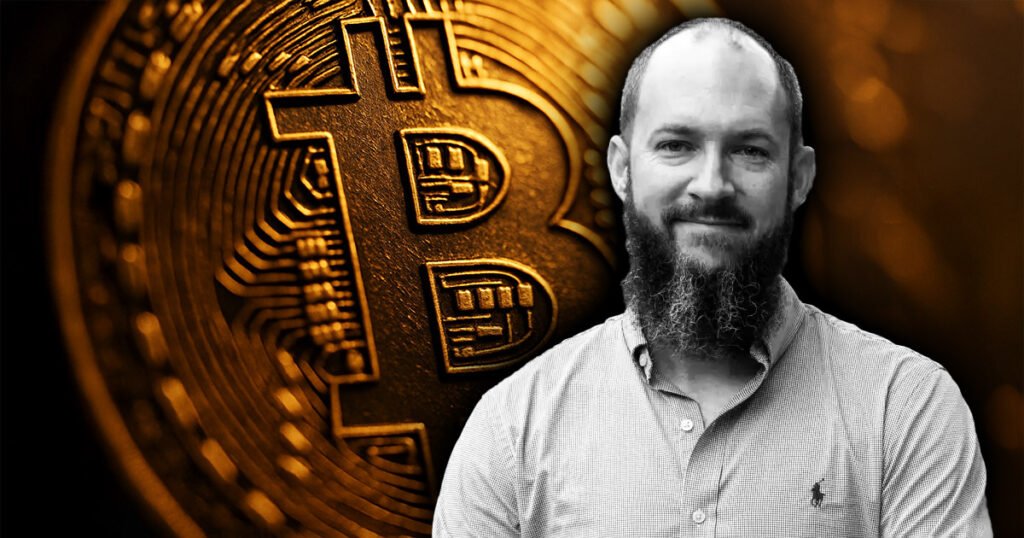The Importance of Bitcoin Security: Insights from Jameson Lopp
Introduction to Slate Sundays
Welcome to Slate Sundays, a feature by CryptoSlate that dives deep into the world of cryptocurrency through interviews, analysis, and op-eds. This week, we shine the spotlight on Jameson Lopp, a prominent figure in crypto security whose work has significantly influenced the Bitcoin landscape. Known for his integrity and commitment to educating others, Lopp’s efforts focus on the critical aspect of cryptocurrency security, an area that often receives less attention than it deserves.
Jameson Lopp’s Commitment to Bitcoin Security
Few individuals embody the spirit of Bitcoin security like Jameson Lopp. As co-founder of Casa and a security expert, he dedicates his career to educating users about the potential pitfalls of cryptocurrency. Lopp firmly believes in discussing the harsh realities of crypto security—an often unrewarding pursuit, especially when the discussions can appear unexciting or off-putting compared to the flashy narratives surrounding Bitcoin. His emphasis on security comes from a rich understanding of the very real threats within the crypto ecosystem, including the alarming rise in physical attacks on Bitcoiners, prompting an urgent need for awareness and self-defense strategies.
Personal Experiences Fueling Security Advocacy
One of Lopp’s most striking experiences was a SWATting incident in 2017 that turned his life upside down. After enduring a fraudulent police raid, he became acutely aware of the dangers that can come with visibility in the Bitcoin world. Instead of retreating, Lopp chose to enhance his privacy measures and became a living example of how to protect oneself in a volatile digital landscape. His commitment to remaining anonymous while still educating others denotes a striking balancing act; he believes in leveraging his reputation to continue raising awareness even while opting for a lifestyle that prioritizes his safety.
Addressing the Rise of Wrench Attacks
Lopp notes with concern the uptick in wrench attacks, with over 200 documented incidents targeting Bitcoin holders. Factors such as the increasing value of Bitcoin and its growing ecosystem have made individuals more appealing targets for organized crime groups. Lopp stresses the importance of awareness, advising Bitcoiners to be mindful of their public personas. Flaunting wealth can lead to undesirable attention, making individuals easy prey for attackers. He recommends anonymity wherever possible and cautions against the risks associated with public exposure in the age of KYC (Know Your Customer) regulations.
Navigating KYC and Personal Data
For Bitcoin enthusiasts, maintaining privacy in an increasingly regulated environment becomes imperative. Jameson emphasizes that the best strategy is to avoid KYC services altogether, suggesting that users seek non-KYC options for transactions, regardless of the inconveniences that may come with them. He provides practical tips for those who must comply with KYC by carefully selecting documentation that minimizes the exposure of personal data. This knowledge not only helps users safeguard their own information but also nurtures a broader culture of privacy within the cryptocurrency community.
Long-Term Concerns and Future Outlook for Bitcoin
While excited about Bitcoin’s growth, Lopp expresses concern about the degree of centralization that could arise from corporate treasuries accumulating vast amounts of Bitcoin. He worries that this trend threatens the decentralized ideals on which Bitcoin was founded. Furthermore, Lopp warns about the looming threat of quantum computing, which could pose serious risks to Bitcoin security if not addressed proactively. He advocates for continuous discussions about improvements rather than adopting a complacent attitude about Bitcoin’s current state.
Conclusion: A Call for Active Engagement in Bitcoin Discourse
Jameson Lopp’s journey and insights underscore the importance of active participation in the Bitcoin community. As threats to security evolve, so too must our responses. By openly discussing vulnerabilities and advocating for better practices, Bitcoiners can safeguard the integrity of the network. Lopp concludes with a powerful message: to ensure that Bitcoin remains resilient, we must stay engaged and proactive in addressing potential threats. The future of cryptocurrency rests on the collective efforts of its community—meaning each conversation and shared experience is vital for steering the ecosystem towards a safer and more secure environment.

















